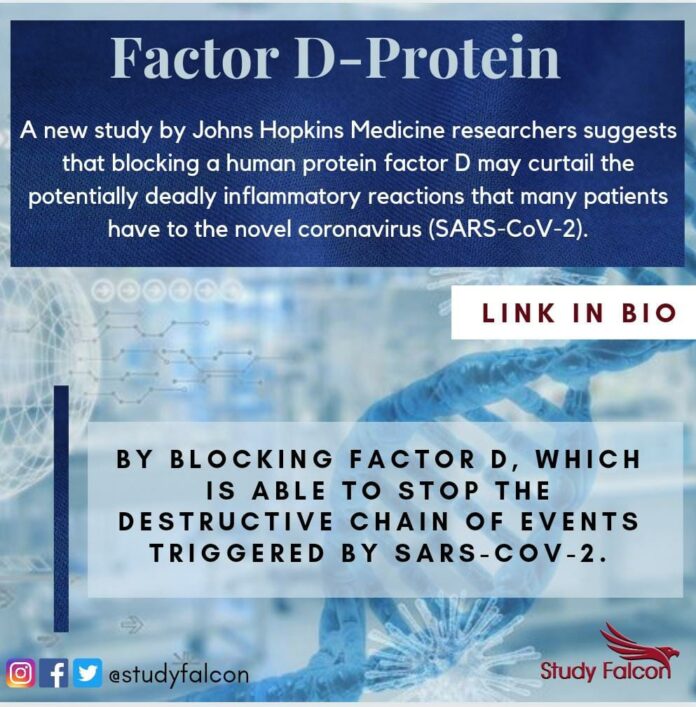A new study by Johns Hopkins Medicine researchers suggests that blocking a human protein factor D may curtail the potentially deadly inflammatory reactions that many patients have to the novel coronavirus (SARS-CoV-2).
The new study used normal human blood serum and three subunits of the SARS-CoV-2 spike protein to discover exactly how the virus hijacks the immune system and endangers normal cells. Team focused on two proteins, factor H and factor D, which are known as “complement” proteins, because they help the immune system clear pathogens from the body.
The researchers discovered that Covid-19’s spike protein causes factor D to overstimulate the immune response, which in turn prevents factor H from mediating that response. Spike proteins on the surface of SARS-CoV-2 are the means by which it attaches to cells targeted for infection.
The spikes first grab hold of a molecule called heparan sulfate. Heparan sulfate is a large, complex sugar molecule found on the surface of cells in the lungs, blood vessels and smooth muscle making up most organs. Facilitated by its initial binding with heparan sulfate, SARS-CoV-2 then uses another cell-surface component, the protein known as angiotensin-converting enzyme 2 (ACE2), as its doorway into the attacked cell.
ACE2 is a protein on the surface of many cell types. It is an enzyme that generates small proteins – by cutting up the larger protein angiotensinogen – that then go on to regulate functions in the cell.
When SARS-CoV-2 attacks the ACE2 receptors to proliferate and infect more cells in the human body, it also prevents Factor H from using the sugar molecule to bind with cells. Factor H’s main function is to regulate the chemical signals that trigger inflammation and keep the immune system from harming healthy cells.
The team found that by blocking factor D, they were able to stop the destructive chain of events triggered by SARS-CoV-2. It has provided a definite direction for research to tackle Covid-19. There may already be drugs in development for other diseases that can block this protein, a positive sign for the study.










